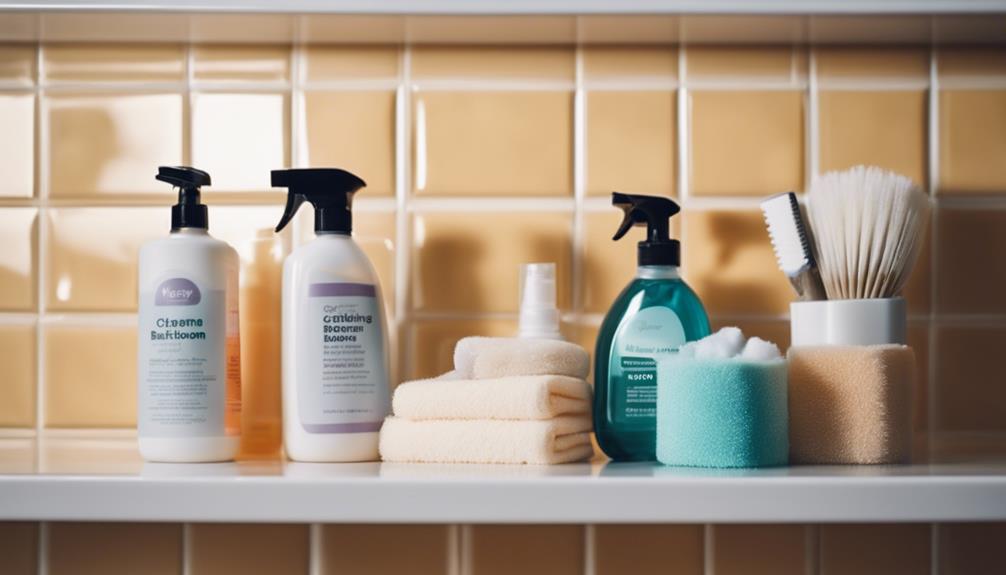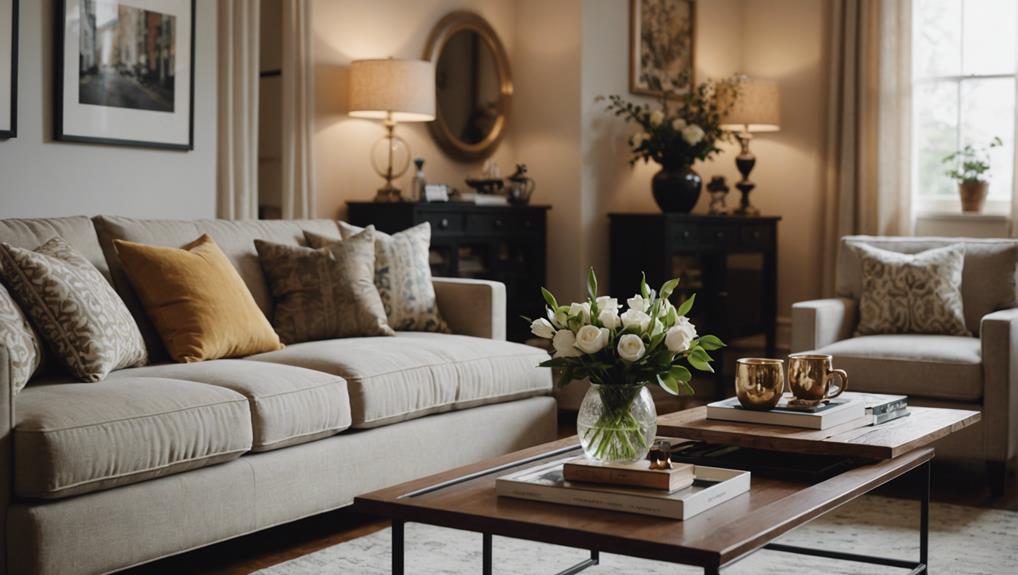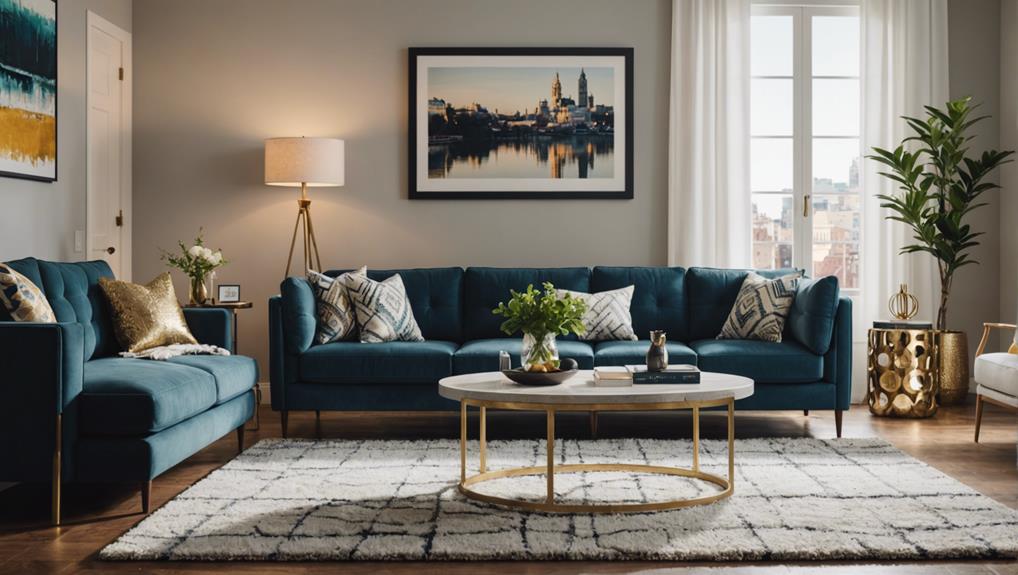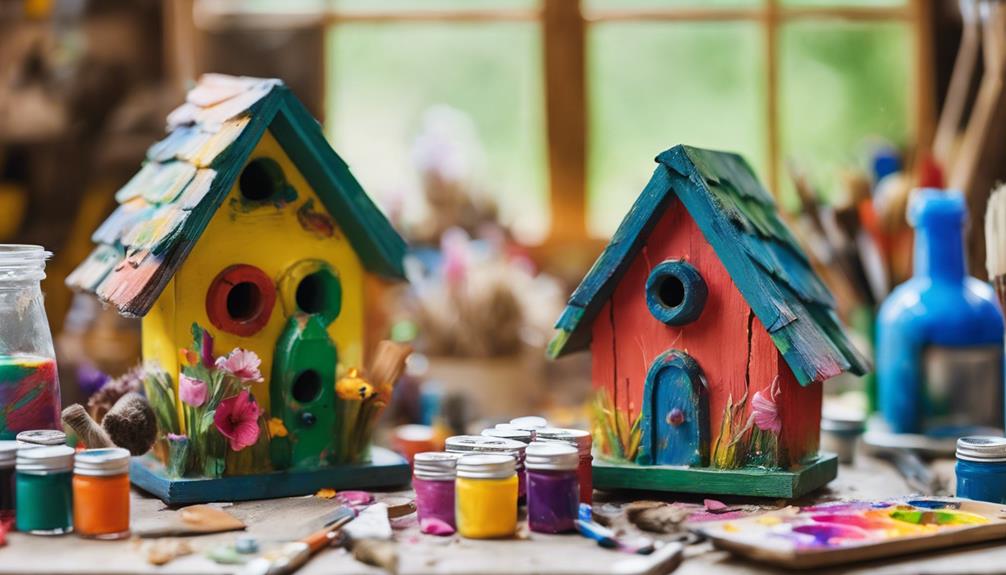Interior decorating offers a fulfilling career path where creativity, client interaction, and industry growth intersect. With a focus on enhancing spaces and reflecting personal styles, decorators work closely with clients to bring visions to life. Skills like creativity, communication, and attention to detail are essential, along with formal education and practical experience. The potential for steady income growth is promising, with an average annual salary in the US around $47,188. By exploring various design paths, embracing industry trends, and honing key skills, interior decorating opens doors to a dynamic and rewarding profession. Consider the diverse opportunities waiting in this creative field.
Key Takeaways
- Interior decorating offers creative expression and personalized solutions.
- The industry provides diverse career paths in design.
- Projected market growth to $210 billion by 2027.
- Rising demand for sustainable design practices.
- Engaging in a dynamic and expanding profession.
Job Duties of Interior Decorators

Interior decorators focus on enhancing the visual appeal of a space by selecting and arranging furniture, accessories, and color schemes. Their job duties revolve around understanding client preferences, working within budget constraints, and transforming interiors to reflect the desired style. When it comes to interior decorating, it's essential to prioritize the client's vision while incorporating elements that elevate the overall aesthetics of the space. This involves collaborating closely with clients to determine their likes, dislikes, and specific requirements for the project.
In addition to focusing on visual appeal, interior decorators must also be adept at managing budgets effectively. They need to source materials, furniture, and decor items that align with the client's financial constraints while still achieving the desired look. By carefully balancing client preferences with budget considerations, interior decorators can create stunning spaces that meet the needs and expectations of their clients.
Skills Required for Interior Decorating
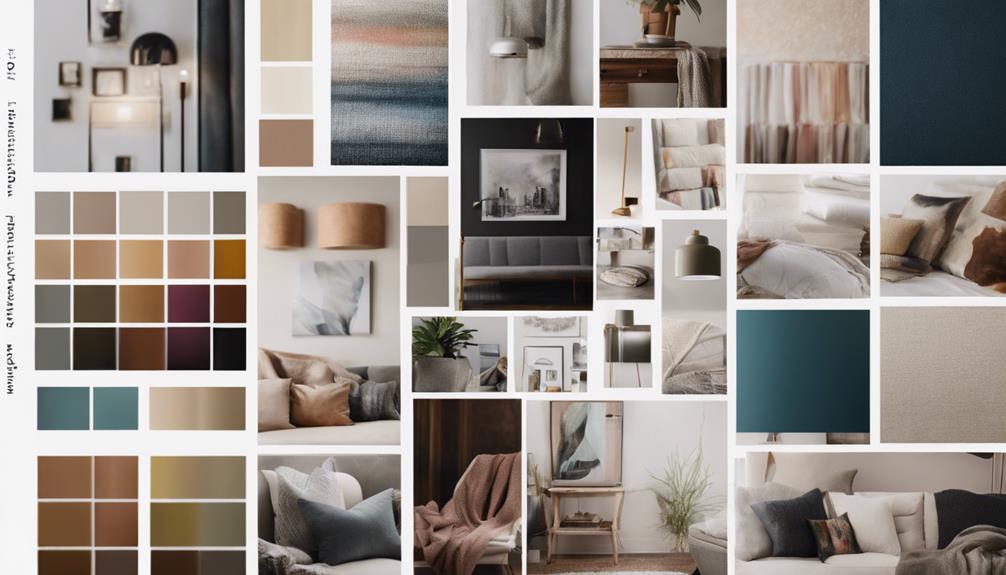
Utilizing strong creativity and imagination is key to excelling in the field of interior decorating. When pursuing a career in interior decorating, designers must possess a diverse set of skills and knowledge needed to create designs that meet clients' specific requirements. Here are some essential skills for interior decorators:
- Creativity and Imagination: The ability to think outside the box and generate innovative design ideas is critical in transforming spaces.
- Communication and Client Management: Effective communication skills are essential for understanding clients' needs and preferences, while strong client management skills help in building trust and rapport.
- Attention to Detail and Problem-Solving: Paying attention to details and having problem-solving abilities are crucial for creating functional and aesthetically pleasing interior spaces.
- Technical Proficiency: Proficiency in design software and tools is necessary for executing design concepts and bringing ideas to life.
Additionally, having a portfolio showcasing your work can demonstrate your capabilities to potential clients and employers.
Education and Training for Decorators

When it comes to becoming an interior decorator, understanding the training requirements and education options available is essential.
Whether through on-the-job experience, mentorship, or formal certification programs, decorators have various paths to develop their skills.
Training Requirements for Decorators
Training programs and certifications can provide valuable skills and knowledge for aspiring interior decorators. When considering a career in interior decorating, individuals should focus on the following key aspects:
- Formal Education: While not always required, formal education in design-related fields can provide a strong foundation for decorators.
- Certifications: Obtaining certifications, such as those offered by organizations like CID, can enhance decorators' credibility in the industry.
- Practical Experience: Internships, apprenticeships, or on-the-job training can offer hands-on experience and insight into the day-to-day responsibilities of a decorator.
- Continuing Education: Staying updated on design trends, materials, and techniques through continuing education is essential for decorators to remain competitive and successful in the field.
Education Options Available
Interior decorating enthusiasts have a range of education options to choose from to enhance their skills and knowledge. Design enthusiasts can pursue certificate programs, associate degrees, or online courses to gain expertise in interior design. Certificate programs typically offer focused training on design principles and techniques within 6 months to 2 years. Associate degrees provide a comprehensive curriculum covering design fundamentals, space planning, and color theory. Online courses offer flexibility for self-paced learning and can be cost-effective for acquiring essential skills.
Education in interior decorating equips individuals with knowledge in furniture styles, fabric selection, lighting design, and creating cohesive interior spaces, preparing them for a fulfilling career in the industry.
Salary Potential in Interior Decorating

When it comes to salary potential in interior decorating, it's important to take into account factors like experience, location, and clientele to assess earning opportunities.
As interior decorators gain more experience and establish a solid portfolio, they often have the chance to command higher fees.
Freelancers especially have the freedom to set their rates, potentially leading to increased earnings based on demand.
Salary Growth Potential
Experienced professionals in interior decorating can expect their incomes to steadily increase over time, reflecting the industry's salary growth potential. As interior decorators gain more experience and recognition, their earning potential grows.
Factors such as expanding their client base, enhancing their portfolio, and specializing in high-end projects contribute to this salary advancement. The opportunity for career progression in interior decorating allows professionals to access lucrative markets and cater to affluent clients.
This upward trajectory in income aligns with the industry's trend of rewarding skilled and successful interior decorators with higher fees for their services.
Industry Earnings Trends
Reflecting industry trends, interior decorators have seen a steady growth in their earning potential over recent years. The average annual salary for professionals in interior design careers is approximately $47,188 in the United States.
With experience and skill development, interior decorators have the opportunity to earn higher salaries over time. The field of interior design jobs is projected to experience an increase in demand, offering professionals the chance to explore freelance work and enjoy flexibility in scheduling.
Financial Rewards in Decorating
Exploring the financial rewards in decorating, interior decorators can leverage their skills and experience to maximize their salary potential. When it comes to salary potential in interior decorating, here are some key points to bear in mind:
- The average annual salary for interior decorators in the United States is approximately $47,188.
- Experienced decorators have the opportunity to earn higher salaries, with top earners exceeding $67,000 per year.
- Salary potential in interior decorating varies based on factors such as location, experience, and clientele.
- Interior decorators can increase their earnings by offering specialized services and working on upscale projects.
Freelance decorators may experience fluctuating income levels due to variations in project demand and market trends.
Advantages of Pursuing Interior Decorating
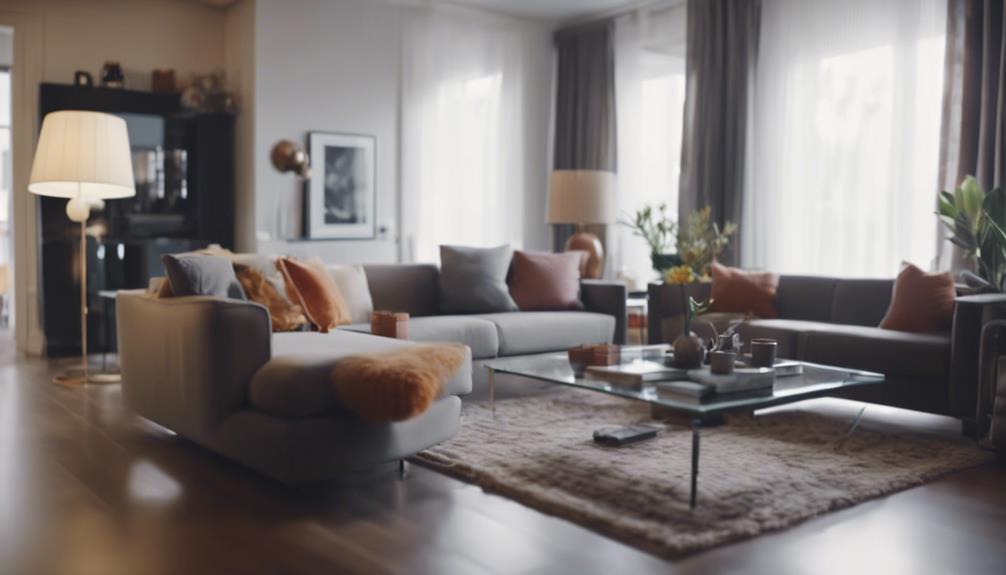
Starting a career in interior decorating offers numerous advantages for individuals looking to begin a dynamic and creative profession. Interior decorating allows individuals to express their creativity and transform spaces into visually appealing environments. It provides the opportunity to work closely with clients, understanding their preferences to create personalized design solutions. One can explore a variety of career paths within interior decorating, including residential and commercial interior design, offering flexibility and room for growth. Additionally, the industry is projected to expand, indicating a growing demand for skilled professionals in the field.
Moreover, pursuing a career in interior decorating enables individuals to engage in environmentally friendly design practices. This emphasis on sustainability not only benefits the environment but also aligns with the current trend towards eco-conscious living. Working in interior decorating also opens doors to opportunities within design firms, where individuals can collaborate with like-minded professionals and further hone their craft. Overall, starting a career in interior decorating can lead to a fulfilling profession that combines artistic expression with practical problem-solving skills.
Challenges Faced in Interior Decorating

Balancing the delicate interplay between client preferences and personal creativity presents a significant challenge in the field of interior decorating. This dynamic often requires maneuvering differing opinions and finding a harmonious blend to satisfy both parties.
In addition to this primary challenge, interior decorators face several other obstacles in their day-to-day work:
- Managing Time Effectively: Meeting project deadlines while ensuring quality work can be demanding, requiring excellent time management skills.
- Handling Budgets Wisely: Staying within the allocated budget while delivering a design that meets the client's expectations is a constant juggling act.
- Staying Creative Amid Industry Trends: Balancing creativity with staying current on industry trends and advancements is essential to provide fresh and innovative designs.
- Maintaining Work-Life Balance: The time-intensive nature of interior decorating projects can encroach on personal time, making it essential to establish boundaries for a healthy work-life balance.
These challenges underscore the multifaceted nature of the interior decorating profession and highlight the skills and adaptability required for success.
Growth Opportunities in the Field
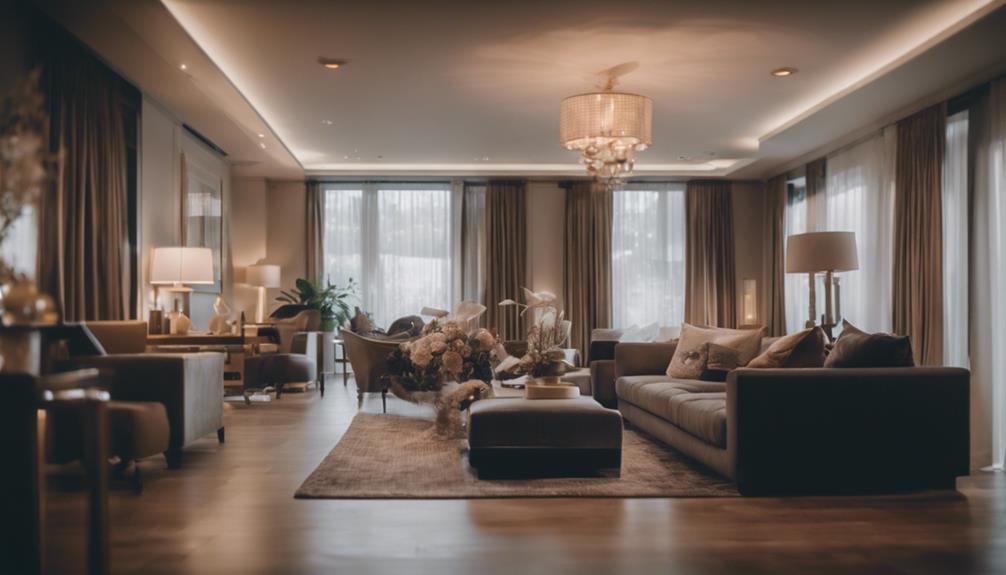
Diverse career paths in interior decorating offer ample growth opportunities across various specialized sectors and industries. As designers, we can explore avenues in residential and commercial projects, home staging, lighting design, set design, exhibit design, and even sustainable design. The industry's market value is projected to reach $210 billion by 2027, highlighting significant potential for career growth. Moreover, niche sectors like yacht and boat interior design, as well as educational facility design, present unique opportunities for interior decorators to expand their expertise and clientele.
The rising demand for sustainable design practices further enhances growth prospects in the field. By focusing on eco-friendly projects, interior decorators can tap into a growing market segment and contribute to environmentally conscious design solutions. Additionally, industries such as real estate, hospitality, entertainment, and education heavily rely on designers to create visually appealing and functional spaces, ensuring a steady stream of job prospects and avenues for career advancement in the dynamic world of interior decorating.
Industry Trends Impacting Interior Decorators
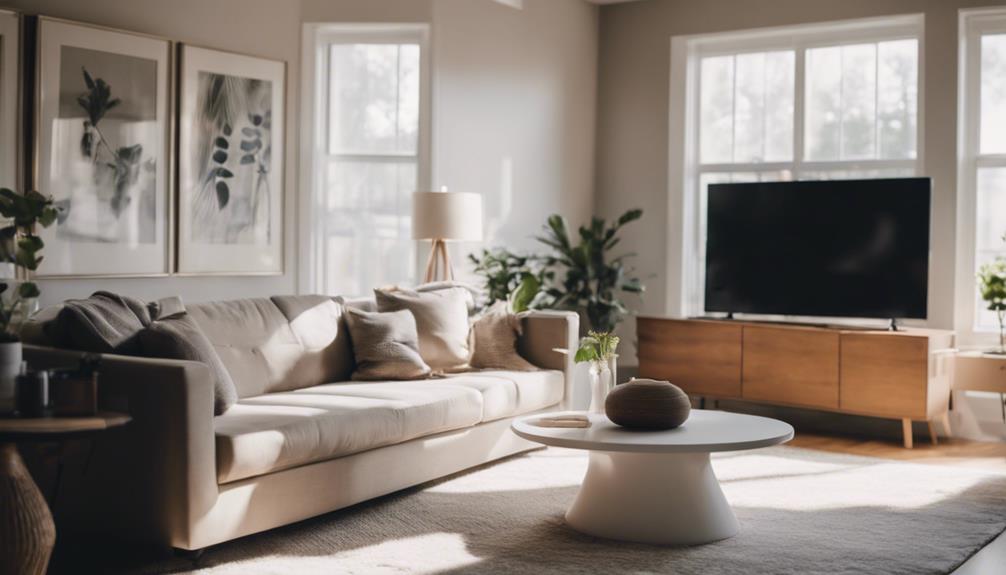
Incorporating sustainable design practices has become a key focus for interior decorators in response to the increasing demand for eco-friendly and healthy living spaces. This shift towards sustainability is reshaping the industry, with a focus on using environmentally friendly materials and creating indoor environments that promote well-being. Additionally, the integration of smart home technology is on the rise, allowing interior decorators to enhance the functionality and convenience of living spaces for their clients.
Here are some key industry trends impacting interior decorators:
- Personalized Design: Interior decorators are prioritizing personalized and experiential design solutions to create unique and tailored experiences for their clients.
- Wellness Design: There's a growing emphasis on wellness and biophilic design in interior decorating, aiming to improve well-being through connections to nature and natural elements.
- Collaboration with Other Disciplines: Interior decorators are increasingly collaborating with other design disciplines, such as architecture and landscaping, to provide holistic and all-encompassing design solutions.
- Adoption of Sustainable Practices: Sustainable design is at the forefront, driving interior decorators to adopt eco-friendly practices and contribute to healthier living spaces.
Tips for Success in Interior Decorating

To excel in interior decorating, developing strong creativity and design skills is essential. Enhance your communication abilities to effectively understand and meet client preferences.
Stay updated on industry trends and technological advancements in interior decorating to remain competitive in the business. Building a strong portfolio showcasing your unique design style and capabilities will help you stand out among other interior designers.
Networking with industry professionals and seeking mentorship can provide valuable guidance for growth in your career in design. Starting an interior decorating career requires hard work, dedication, and a passion for creating beautiful and functional spaces.
Frequently Asked Questions
Can You Make Money as an Interior Decorator?
Yes, interior decorators can make money through their design services. Earnings depend on factors like experience, location, and client base. Successful decorators boost income with referrals and expanding portfolios. Freelancers have flexibility in setting rates and project selection.
Building a strong reputation and unique style can attract higher-paying clients. It's possible to earn a decent living as an interior decorator with dedication and a solid business strategy.
Is It Hard Being an Interior Decorator?
Being an interior decorator can be challenging. Balancing client preferences and creative freedom requires finesse.
Time management is important to meet deadlines and budgets. Staying updated on design trends and technology is essential.
Handling unexpected design obstacles is part of the job. It's essential to maintain a work-life balance in this demanding career.
Is Interior Decorating a Stressful Job?
Yes, interior decorating can be a stressful job. Tight deadlines, client expectations, and managing multiple projects simultaneously can all contribute to the stress levels in this profession.
Balancing creativity with practicality while meeting client demands and dealing with unexpected design obstacles and revisions can be challenging. Maintaining work-life balance is essential to prevent burnout in this field.
Stress management techniques and effective time management skills are vital for success in interior decorating.
Is Interior Design a Good Career for the Future?
In addition, interior design presents promising opportunities due to the industry's projected growth and evolving trends like sustainability and smart technology integration.
Specializing in sectors such as residential, commercial, and sustainable design allows for diverse career paths.
Furthermore, educational facilities interior design caters to large student populations by optimizing spaces for various activities.
Conclusion
To wrap up, pursuing a career in interior decorating can be a fulfilling journey filled with endless opportunities to express your creativity and transform spaces into works of art.
With the right skills, education, and determination, you can establish a successful career in this dynamic field.
Just like a skilled decorator brings life to a dull room, you too can breathe life into your career by choosing to venture on this exciting path.
The world of interior decorating awaits, ready for you to leave your mark.

